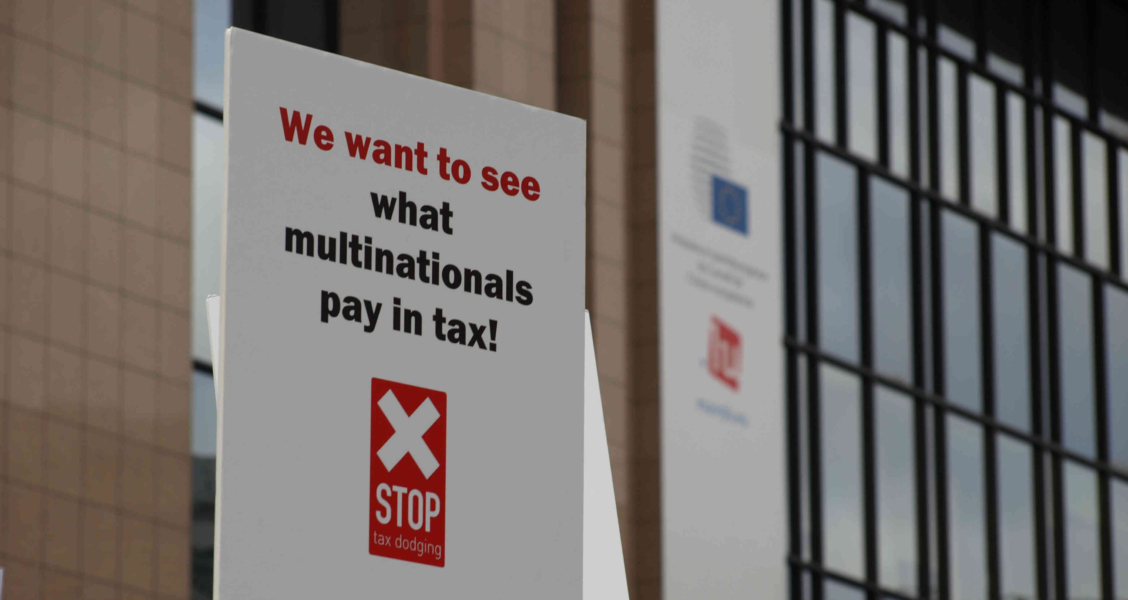Brussels, 13 July 2016 – Corporate claims about the impact of transparency on business do not stand up, according to new research published by Transparency International EU today. While more and more multinational companies are publishing detailed financial information about each country they operate in, this does not harm their ability to make profits and grow their businesses.
Given the results, Transparency International EU strongly advocates that the European Parliament and the EU Council revisit the European Commission’s flawed proposal on corporate reporting and ensure real public country-by-country reporting is in place for all countries where a company operates [1].
The report, which analyses the performance of 28 European and Indian companies over a three-year period, shows the repeated claims by business that competitiveness will be harmed by greater country-by-country reporting is not backed up by the evidence.
In fact the research shows that 43 per cent of the European companies that already publicly report on a country-by-country basis improved or maintained their revenue performance. Similarly, more than 90 per cent of the assessed Indian companies that report on subsidiary-by-subsidiary basis had a revenue growth comparable or higher than an average of other international companies in a similar sector [2].
“Companies can no longer say public country-by-country reporting puts them at a competitive disadvantage. The research does not back them up. The EU must do much more to promote this important anti-corruption practice across the corporate world,” said Elena Gaita, Policy Officer on Corporate Transparency at Transparency International EU.
The case of India demonstrates that greater transparency does not automatically translate into lost competitiveness. It also shows how regulation can be vital to increasing corporate transparency and accountability.
India has mandatory legislation on public subsidiary-by-subsidiary reporting. Transparency International EU’s research shows that this does not appear to have any negative impact on Indian companies’ performance. The report strongly supports the EU passing much bolder legislation on public country-by-country reporting (CBCR). Some European companies are already voluntarily disclosing information on their turnover, profits, taxes paid and subsidiaries on a country-by-country basis.
“Voluntary and non-harmonised measures, however, will always create loopholes. Legal requirements are the only way to achieve real accountability from companies. It is time for the EU to adopt comprehensive public CBCR,” concluded Gaita.
###
For the summary and key findings of the report click here
Notes:
[1] Public country-by-country reporting is a framework where multinationals have to publish financial information on their profits and taxes paid, among other data, for each country of operation. Public CBCR allows civil society, media and policy-makers to scrutinise multinationals’ activities and contributions to the societies they operate in.
The European Commission’s proposal for public CBCR released in April fell short of civil society’s expectations, by having one set of reporting for the EU and a selected group of tax havens, and another for the rest of the world. For more information, see our joint Q&A on the European Commission’s proposal
[2] Indian companies report on a public subsidiary-by-subsidiary basis under the Indian Companies Act (2013). The requirement has been in place in various forms since the Act’s inception in 1956, providing a basis for evaluating subsidiary performance, related payments and inter-company flows within Indian multinational corporations. Indian companies’ transparency is assessed in Transparency International’s report Transparency in Corporate Reporting – Assessing Emerging Market Multinationals (2016).
It is Transparency International’s view, however, that CBCR is preferable to subsidiary-by-subsidiary reporting because larger subsidiaries may have cross-border operations and the omission of smaller, ‘non-material’ subsidiaries may obscure a company’s presence in some countries.
Media contacts:
Irini Tseminidou
E: itseminidou@transparency.org
T: +32 (0)2 893 24 57



